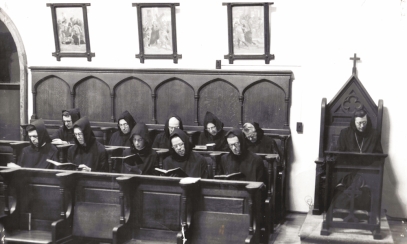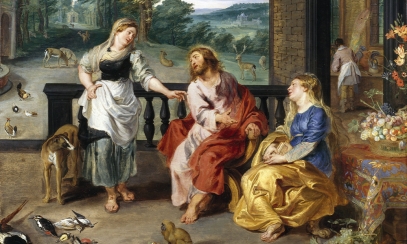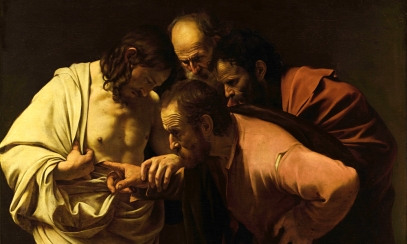
‘How do we go from God exists to monotheism to Christianity?’
The very idea of God, His creation, and His saving work of redemption is a lot to take in! It’s understandable if from time to time we step back, scratch our heads, and think we might have missed a step in the process. And so, the question presented to us today is a good one: “How do we go from God exists to monotheism to Christianity?”
The very idea of God, His creation, and His saving work of redemption is a lot to take in! It’s understandable if from time to time we step back, scratch our heads, and think we might have missed a step in the process. And so, the question presented to us today is a good one: “How do we go from God exists to monotheism to Christianity?”
First of all, let’s talk about God. God is the supreme being. God, by the very definition of being God, is all powerful, all wise, all high — to name a few attributes. In other words, God is transcendent. As Aristotle describes God, He is the unmoved mover. That means that God is the cause of all motion, all life in the universe, while God Himself is uncaused. Nothing causes God, but God causes everything else. An uncaused cause, an unmoved mover — that’s what it means to be God. As you can imagine, being the uncaused cause of the universe means that God must be infinite, omnipotent, omniscient, etc.
Now, if God by His very definition is all those things mentioned above, then there can only be one God. Imagine two beings who were the highest, or two beings who were the most powerful. You can’t! Being highest, being most powerful, by the very sense of the words, means that nothing else is as powerful, is as high. Furthermore, if God is the uncaused cause of all things, then anything else besides the one uncaused cause cannot be God! In short, to be God necessarily means to be the only God! That’s the idea we call monotheism.
To address the second part of the question, how do we get from the idea of one God to Christianity? As we know, God loves us with an immense love. That’s why St. Paul says in his letter to the Ephesians, “Even when we were dead through our sins, [God] made us alive together with Christ (by grace you have been saved).” Despite our sin, God was not content to leave us in our miserable state. God, the Most Blessed Trinity, Father and Son and Holy Spirit, desired to redeem us. (If you’re wondering about the idea of a Trinity of Persons in God, that’s another question for another day!) And so, God the Son was incarnate of the Virgin Mary. Think about that! God assumed our human flesh, our human nature. God became man. If you think about the definitions of God we discussed above, you’ll realize just how amazing that Incarnation really was!
The Catechism of the Catholic Church succinctly says, “The Word became flesh so that we might know God’s love. ... The Word became flesh to be our model of holiness … The Word became flesh to make us partakers of the divine nature.” (458, 459, 460) In coming to our world, Jesus Christ revealed to us more about our divine life. He revealed, through His teaching and preaching, about His Father, about the Holy Spirit, our Advocate, and about the Kingdom of God. Thus, as the catechism says, we can know God’s love for us, we have a pattern of how to be holy, and we are joined to the very life of God. That is the gift that Jesus brings us.
But, the Lord Jesus was not content to preach and teach alone. Rather, He entrusted His message of salvation to His Apostles and enjoined them to spread that message to the ends of the world. (cf., Mt 28:19) Thus, the Lord founded the Church, built on the rock of St. Peter, to carry out the divine work of salvation for all people. It’s important for us to remember though, that the work of salvation is God’s work. The Church is not an institution founded on human power, but rather divine power. As we discussed at the beginning of this article, God is the all-powerful King of Creation, Who alone has power to create and draw all of creation back to Himself!
Father Paschal Pautler, O.S.B., is a monk and priest of St. Bernard Abbey in Cullman. Hailing from Birmingham, Father Paschal was educated by the Nashville Dominican Sisters at St. Rose Academy and then by the Monks of St. Bernard Abbey at St. Bernard Preparatory School. After graduation from high school, he entered the monastery. He was ordained a priest in 2023, and he presently serves as the Development Director for St. Bernard Abbey and Preparatory School.



